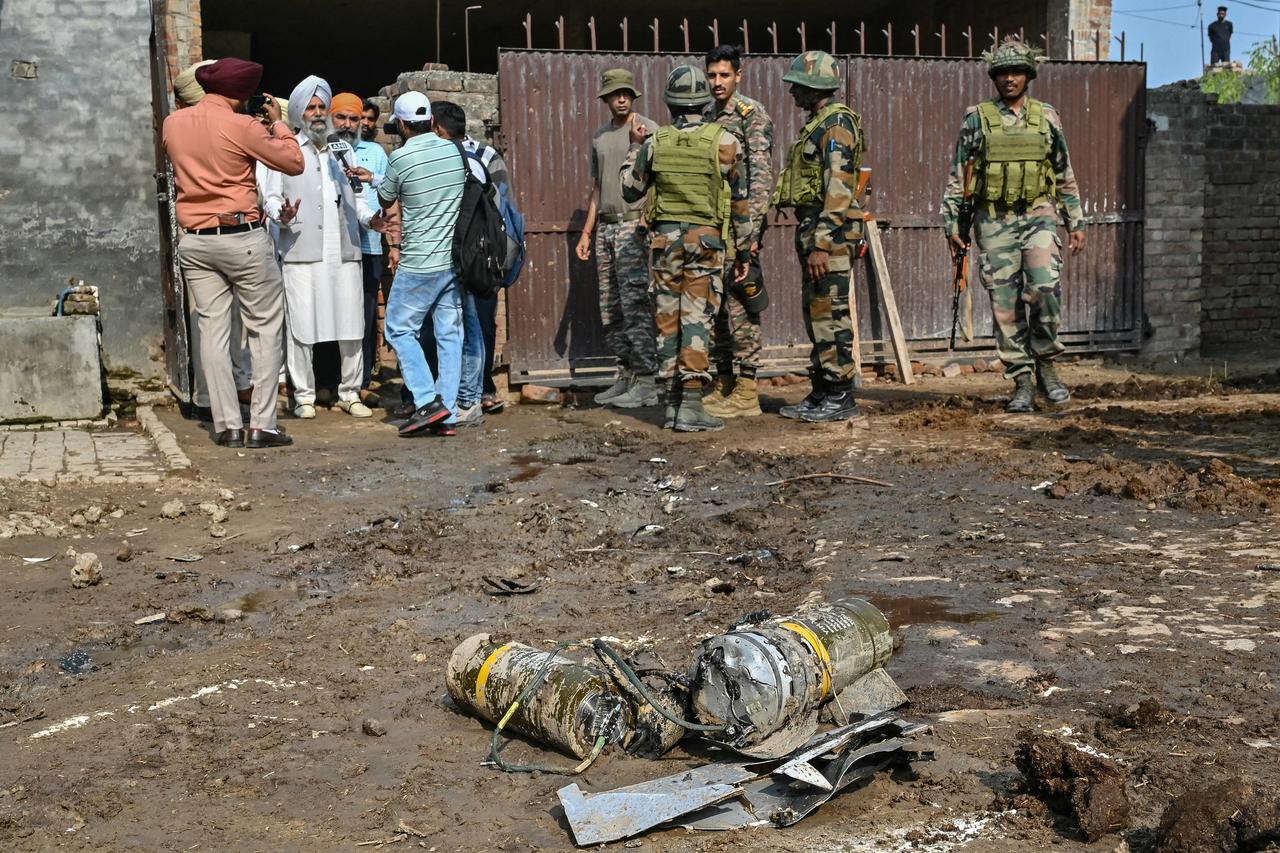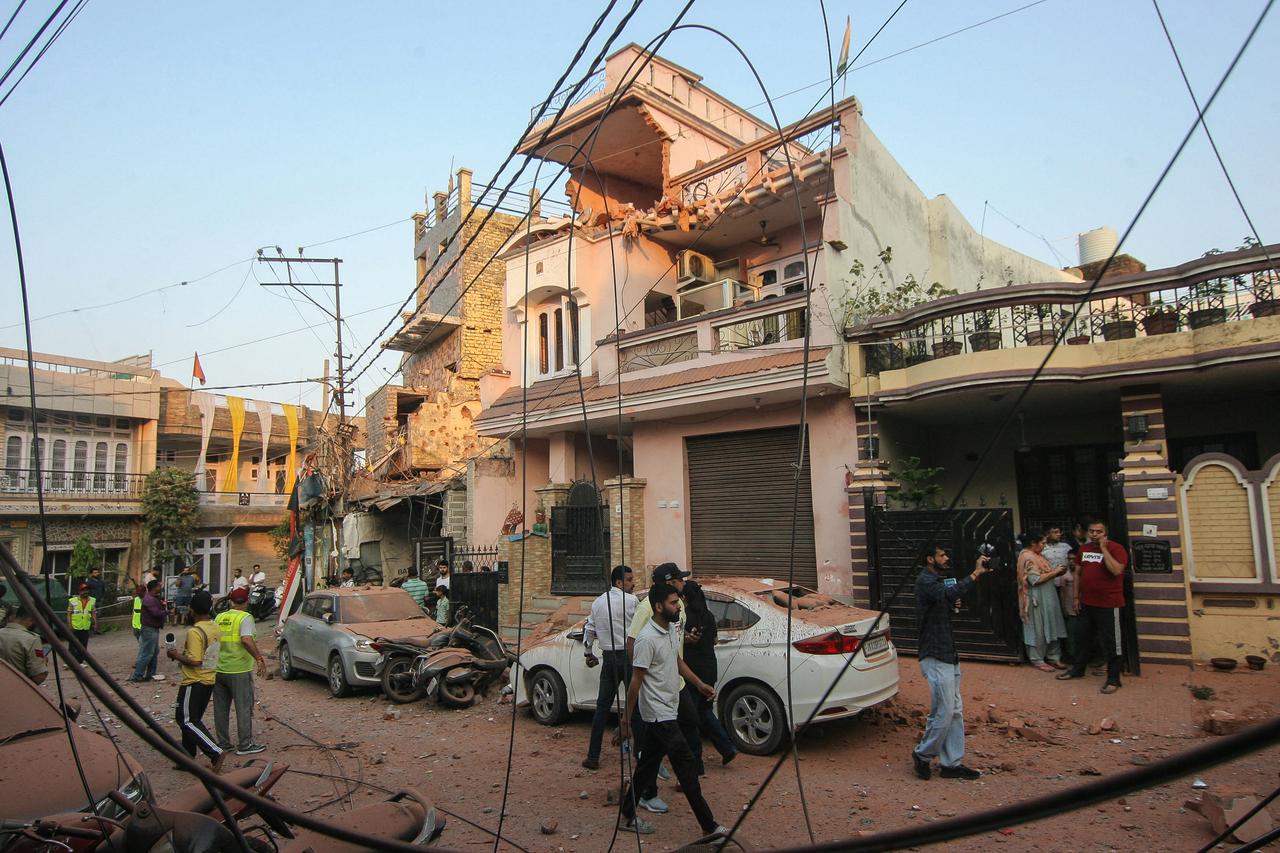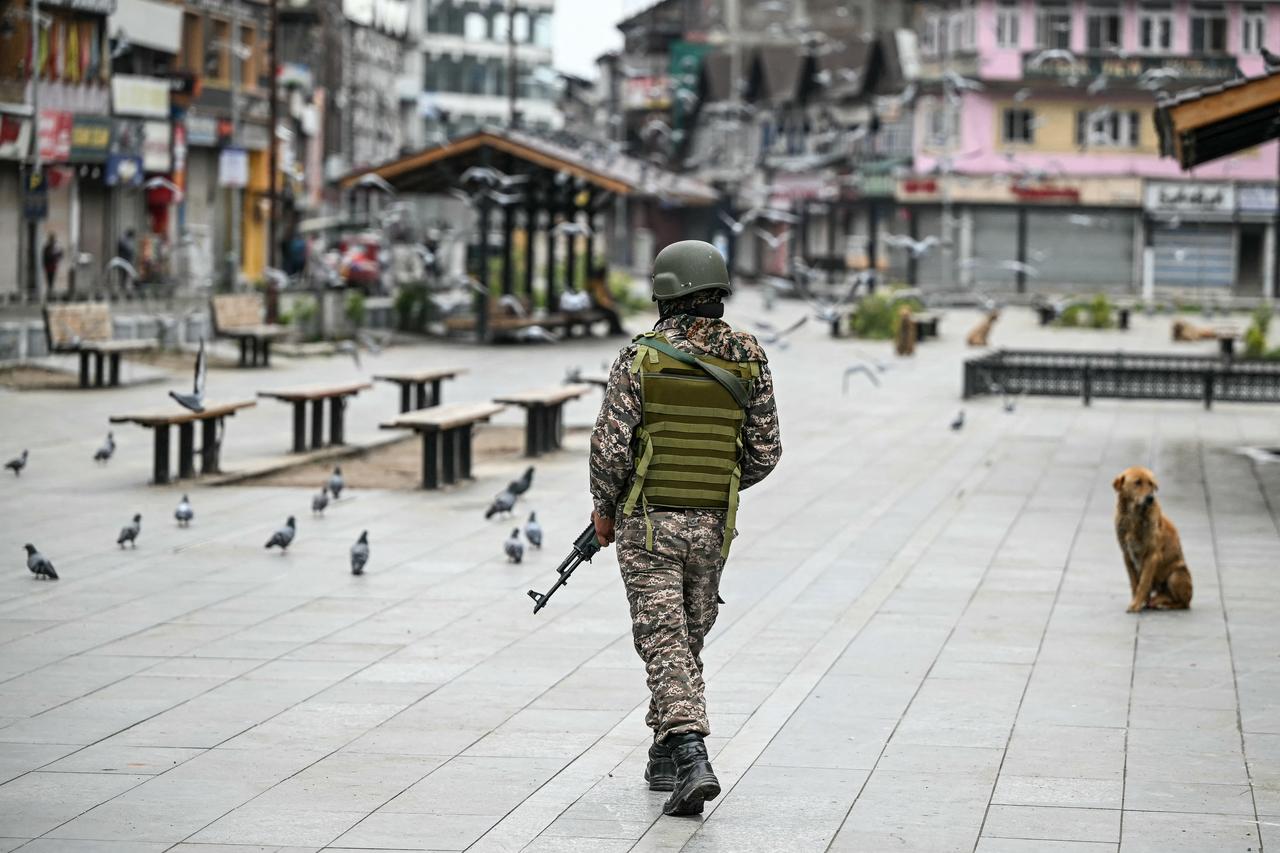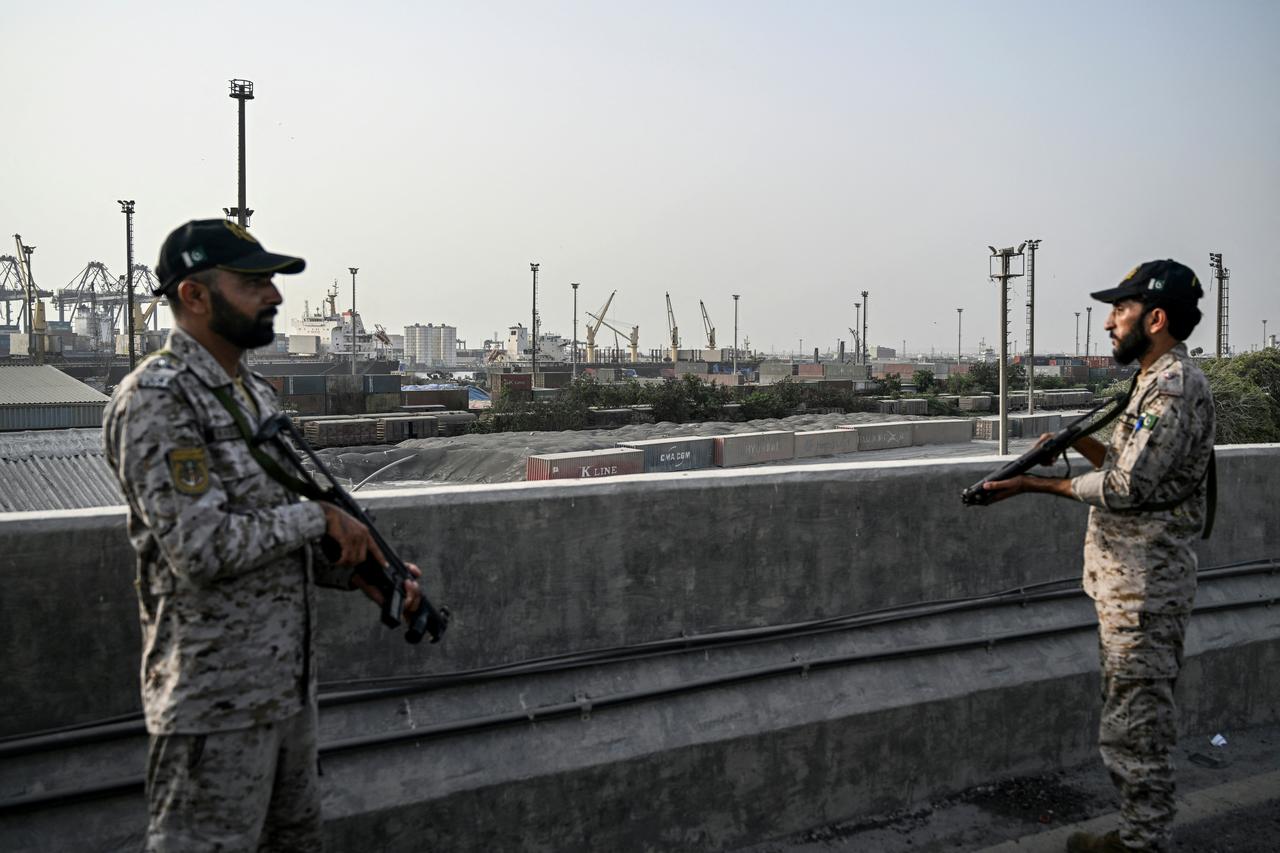
India on Saturday confirmed that Pakistan targeted multiple Indian air bases with high-speed missiles, loitering munitions, and unmanned aerial vehicles (UCAVs), marking a significant escalation in cross-border military activity.
Indian Air Force officer Vyomika Singh said at a joint press briefing with Foreign Secretary Vikram Misri that the attacks occurred during the night and struck several bases in Punjab, including Udhampur, Pathankot, Adampur, and Bhuj.

Singh said Pakistan's strikes also targeted civilian sites, including a medical facility and school premises at air bases in Srinagar, Awantipora, and Udhampur.
"There was limited damage to equipment and personnel," she stated, while denying Pakistani claims that India’s S-400 system at Adampur was destroyed.
Pakistan had earlier claimed the success of its Al-Fatah missile strikes under “Operation Bunyan-un-Marsoos,” launched in retaliation for India’s “Operation Sindoor” on May 6, which reportedly killed 33 people in Pakistan.
Singh said that the Indian armed forces launched “swift and calibrated precision attacks” on Pakistani command centers, radar sites, and weapons storage facilities in response. Misri, joined by Col. Sofiya Qureshi, dismissed Pakistani claims about the S-400 system as "misinformation," stating that the system remained operational.

At least 21 people have been killed in the Kashmir region since Wednesday due to ongoing cross-border shelling, according to Indian officials.
The Indian army said it launched a "coordinated fire assault" on launchpads near the Line of Control, destroying what it identified as "terrorist infrastructure."
The Press Trust of India reported that a missile-like object landed in Dal Lake, Srinagar, as explosions rocked the city. In Jammu, five civilians were confirmed dead following missile impacts. Sirens were activated across Indian-administered Kashmir amid fears of further escalations.

India accused Pakistan of moving troops into forward positions, signaling possible offensive intentions. However, Singh stated that India "reiterates its commitment to non-escalation, provided it is reciprocated."
Pakistan’s Defense Minister Khawaja Asif told ARY TV, "This thing that you have spoken about (nuclear option) is present, but let's not talk about it … we should treat it as a very distant possibility."
Asif also confirmed no meeting of the National Command Authority—the body responsible for nuclear oversight—had taken place or was planned.
The latest round of hostilities was sparked by India’s strikes on May 6, dubbed “Operation Sindoor,” in response to a deadly attack on Hindu tourists in Indian-administered Kashmir. Pakistan denied any involvement. Since then, both sides have exchanged drone and missile strikes, with Pakistan reporting earlier Indian missile attacks on bases near Islamabad.